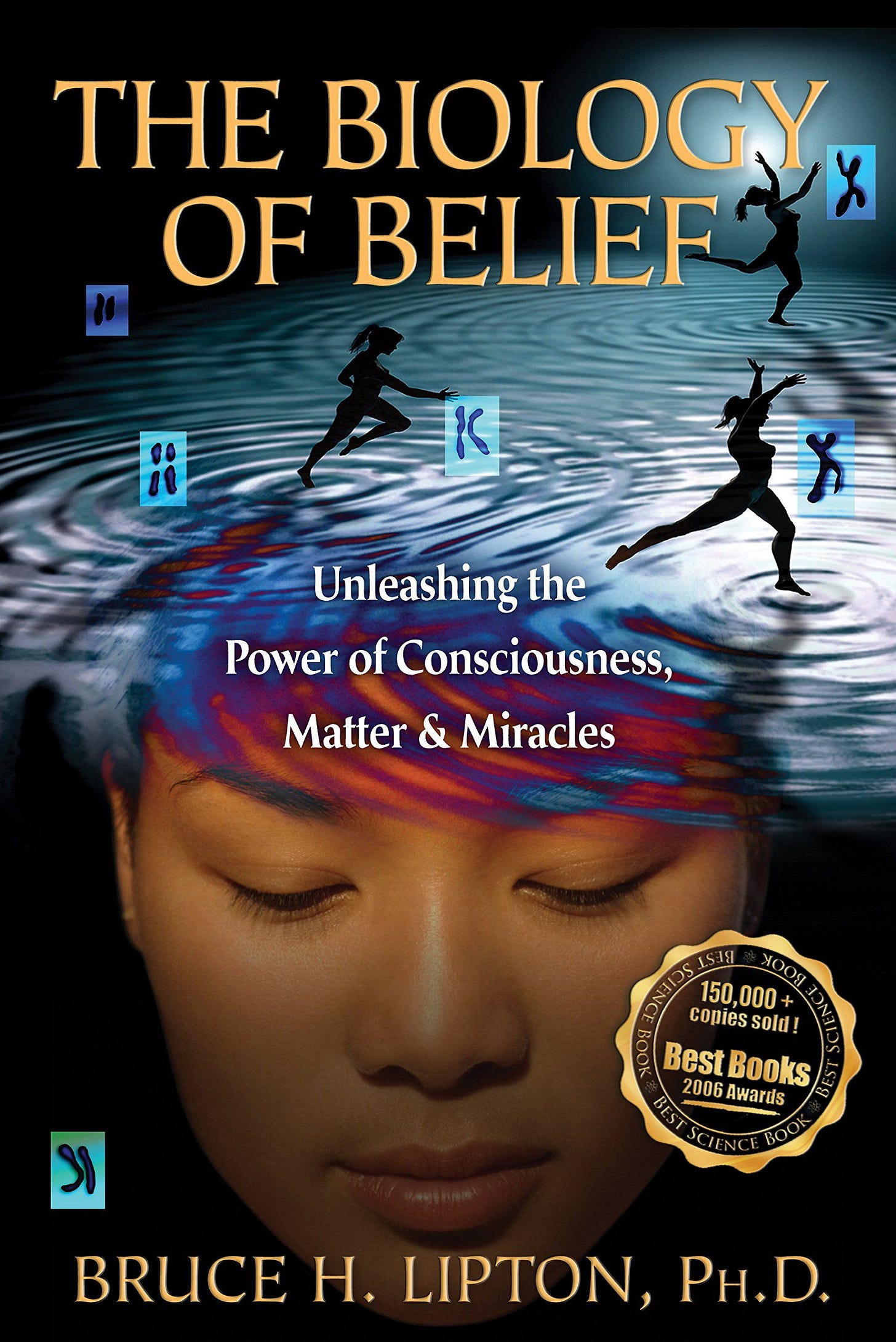3 Books That Changed How I View Healing
Exploring mind-body connection and inner & outer healing
Embarking on a healing journey often requires us to radically shift our perspectives, reevaluate our beliefs, and discover the interconnectedness of mind and body. In my personal journey of healing and my professional work of walking alongside those healing, I have discovered 3 books which have changed how I view the healing journey. These books shifted how I think about myself, my work, and what it means to be a human being healing from something.
I wanted to share them with you because books are better enjoyed with others AND I’m curious what books you might add to my list!
#1: "The Biology of Belief" by Bruce Lipton
In this book, Bruce Lipton, a cell biologist, challenges conventional beliefs about the relationship between mind and body. Lipton introduces the concept of epigenetics, arguing that our thoughts and beliefs can influence our genetic expression and, consequently, our physical health. He explores how our perceptions of the world around us can directly impact our cellular functioning, shaping our overall well-being. Lipton writes with a down-to-earth style that makes cellular biology come to life and his insights reveal such an empowering message about how we can harness the power of our consciousness to shape our health.
#2: "The Lady's Handbook for Her Mysterious Illness: A Memoir" by Sarah Ramey
Oh this was a heart wrenching read on every level! It made me angry, it made me cry, and it made me more determined than ever to show up for my clients struggling with invisible and chronic illnesses. In her memoir, Sarah Ramey offers a raw and honest account of her journey with a mysterious illness that baffled medical professionals. She shares the complexities and hardship of navigating the healthcare system and the world while dealing with chronic and misunderstood conditions. Her story reveals the emotional and psychological toll of chronic illness, providing a poignant reflection on the challenges faced by those on the healing journey. Through her resilience and vulnerability, Ramey invites you to reconsider your perceptions of illness and the transformative power of self-advocacy.
#3: "My Grandmother's Hands" by Resmaa Menakem
Resmaa Menakem's "My Grandmother's Hands" is an exploration of racialized trauma and its impact on the body. Drawing on personal experiences and ancestral wisdom, Menakem introduces the concept of "somatic abolitionism," emphasizing the importance of embodied practices in healing racialized trauma. What I deeply appreciated about this book is that it guides you through exercises and reflections that promote healing on both an individual and collective level. The somatic exercises he offers in this book have become some of my go-to practices for toning the vagus nerve and cultivating safety in my body wherever I am. By addressing the ways in which trauma is stored in the body and passed down through generations, Menakem provides a transformative framework for understanding and healing deep-seated wounds.
There they are! Of course there are more books I love and recommend, but I crafted this list because I appreciate how each of these books offers a unique perspective on the healing journey. Each has influenced my understanding of the mind-body connection, the complexities of chronic illness, and the intergenerational impact of trauma. "The Biology of Belief" by Bruce Lipton challenges us to recognize the power of our thoughts in shaping our biology. Sarah Ramey's memoir, "The Lady's Handbook for Her Mysterious Illness," highlights the importance of self-trust and self-advocacy in the face of chronic illness. Lastly, Resmaa Menakem's "My Grandmother's Hands" invites us to explore the ancestral threads of racialized trauma and to remember embodiment as a radical practice for internal and collective healing.
What books have you read that have altered how you view healing?





